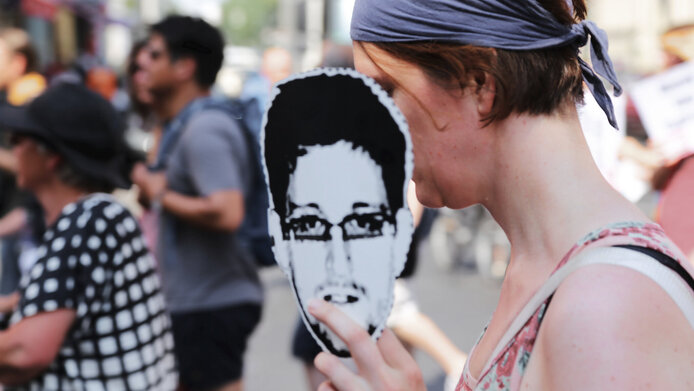Non-violent language does not exist

It is a well known fact that words can hurt just as much as physical violence. Detailed research into the reasons for this is, however, yet to be conducted. With the support of the Austrian Science Fund FWF, Gerald Posselt from the Institute of Philosophy at the University of Vienna is analysing the state of knowledge in his discipline regarding the intricate connection between language and violence. The issue has become highly topical with the emergence of social media. “Enabling the publication and dissemination of postings and comments in real time, social media has not only contributed to a democratisation of opinion, but also created new forms of hatred, propaganda and incitement," the principal investigator explains in the interview with scilog. In a democracy, fundamental rights to freedom of speech and non-discrimination need to be carefully balanced. Some offensive acts of speech are a case for the courts, while others require action to be taken by civil society.
Language is part of being human
Linguistic violence can take many forms: hurtful and offensive statements made to groups or individuals, communicated via media or directly, in front of witnesses or alone, in the local bar or as propaganda. It can also take the form of structurally discriminating or new types of media violence such as “happy slapping”, where a violent act is recorded on a smartphone and then posted on social media. Posselt is exploring the question of why and how people are vulnerable to linguistic utterances as he strives to shed light on the relationship between language and violence. In his research, he not only draws on the work of thinkers such as Friedrich Nietzsche, Jacques Derrida, Michel Foucault, Bernhard Waldenfels and Judith Butler, but also analyses contemporary examples, such as the cases of the whistle-blowers Edward Snowden and Chelsea Manning. “Language is not just an instrument for exchanging ideas and thoughts. Language also opens the world to us and has a subjectivising, community-forming dimension. Because language is an inherently human characteristic that makes us human, it also makes us vulnerable,” Posselt explains.
There can be no non-violent language
The philosopher's central thesis holds that linguistic violence is not a derivative form of physical violence, but a distinct form of violence in its own right: “It is neither possible to gain an adequate understanding of language without taking interpersonal violence into account, nor a sufficient understanding of violence without considering its linguistic-symbolic dimension.” This also means that we need to abandon the idea of a “pure” language: “A language that is completely non-violent could not say or name anything. At the same time, language is an important resource for our relationship with the world and with others. This is also important to remember when attempting to regulate language.” An important finding of the project is that linguistic violence aims to render the other person speechless and rob them of their voice. Consequently, it is important to counteract all forms of hurtful and discriminatory speech that deprive the other person of any possibility to respond or even denies them of their humanity. The researcher argues that language should therefore be viewed in close conjunction with ethics and politics. This would pave the way for a strong notion of responsibility which considers the individual act of speech in its social dimension.
Criteria for violent language
There are no simple answers to the question as to which types of speech are offensive, but certain criteria can be applied to help define what can be said and what cannot: “Speech acts become more violent when specifically targeted at someone, when they are made from a higher level of authority or in public, and when they are constantly repeated. Quotability is especially relevant in the context of social media.” According to Posselt, it is against this background that we also need to consider potential regulations. The courts must not be the only source of reactions; responses must also come from society at large, policymakers, media and individuals ready to take a stance. Contrary to today's culture of moral indignation and excitement, which mainly takes the form of monologues, we need a type of speech “which remains open, which allows for counterarguments and answers and which does not moralise and wag fingers”, concludes Posselt.
Personal details Gerald Posselt studied philosophy, German, physics and chemistry in Darmstadt and Freiburg im Breisgau (BRD). He was a visiting scholar at the Department of Rhetoric at UC Berkeley (USA), a research associate in the Representation-Rhetoric-Knowledge post-graduate research programme in Frankfurt/Oder and held a research position in the project Produktive Differenzen: Geschlechterforschung als Beobachtung und Performanz von Differenz. In 2010, Posselt was appointed Senior Lecturer at the University of Vienna’s Institute of Philosophy.
Publications





